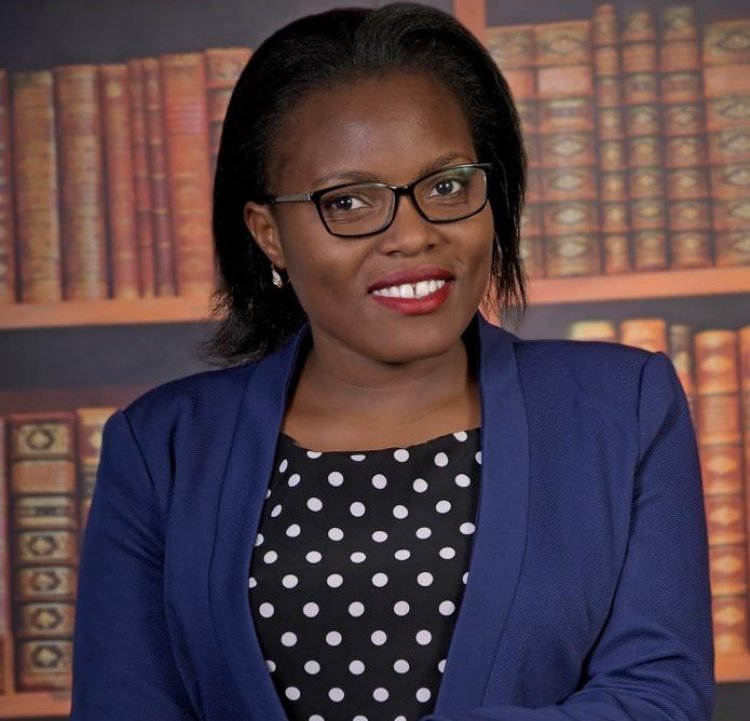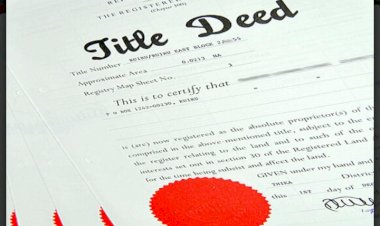Wamaitha: Never Depend on a Developer's Lawyer
Advocate Wamaitha Gichamba is back again on the virtual seat, this time we get to know how and why she became a conveyancer and she also gives one important piece of advice to off-plan property buyers.

1. The last time you were on the virtual seat you told us a bit about yourself. Now, did you always want to be a lawyer growing up?
Well, not quite. I was one undecided kid. At one point, I wanted to be an aeronautical engineer. At another point, I thought wearing a white coat with a stethoscope hanging on my shoulders was pretty cool but I soon realized my handwriting wasn’t sloppy
Anyways, when I completed my secondary education, I wasn’t clear about my career choice. At the time, though, so many students were enrolling for the Certified Public Accountants (CPA) course. I followed suit. Interestingly, in the first section, I was a top performer in the introduction to law class at Strathmore University. My course instructor asked me if I’d ever considered law as a career. It got me thinking and I did a bit of research on what it takes to become a lawyer. That’s how I ended up in a law class and, as they say, the rest is history.
2. You deal with conveyancing. Why did you decide to venture into conveyancing? Had you or someone you know had a bad experience in some land processes?
My area of specialization is actually corporate and tax law. However, as I had mentioned in the previous interview, land is a very emotive and thorny issue in Kenya. When I started my legal practice, most of the clients who reached out to me needed help in conveyancing. Some would cry foul over transactions that went south for trusting conveyancers with their title documents which later got lost or a poorly drafted sale agreement (probably downloaded from the internet) that gave them little or no protection over a property they had paid top dollar for. The first thought that struck my mind was that most land purchasers are mostly oblivious of the land transfer process and often use the less expensive route to get the deal through. This, of course, has its own pitfalls and ends up being an expensive and excruciating experience for the purchaser.
3. You had previously mentioned due diligence in regards to property purchases. What would you advise off-plan property buyers who find themselves in a situation where they are almost losing their property after trusting their developers and using their lawyers?
My advice would be two-fold:
1. Engage an independent lawyer – A lawyer engaged by the purchaser is keen to ensure the interests of the purchaser are protected. The lawyer would be responsible for conducting due diligence independent from the developer or their lawyer, ensure the transfer process is seamless and that the purchaser gets a “clean” title in their name. The lawyer would also advise the purchaser if there would be a need to take legal action against the said developer.
Since lawyers are bound by rules of professional conduct, they perform their duties with the due care and skill expected of legal professionals. In certain instances, the seller’s advocate holds the purchase price as a stakeholder such that the same is only released to the seller when the transfer process is complete. A purchaser’s lawyer sees to it that the purchase price is safeguarded and the buyer gets value for their money. The buyer would then rest assured that they do not risk losing their property or hard-earned cash.
2. Avoid shortcuts – This is a more preventive approach. Purchasers who take shortcuts by entrusting their affairs to the developer or their lawyers find themselves in trouble quite often. See, in land deals, every party is looking out for their interests hence the Latin phrase “Caveat emptor” meaning “Let the buyer beware”. A developer’s lawyer is obviously keen on safeguarding the interests of the developer. When the purchaser relies on the developer or their lawyer to complete the deal on their behalf, the purchaser’s interest will most likely be subordinated to the developer’s interests.
Having said that, lawyers are required to avoid situations of conflict of interest especially when it comes to representing two (2) parties in a land transaction. A lawyer who is confronted by such a scenario should disclose he or she is also acting for the other party. The purchaser in such a case would then have a choice to go ahead and engage the said lawyer or instruct an independent lawyer altogether as outlined above.
-Edited by Skeeter Imisa
If you have a real estate press release or any other information that you would like featured on African Real Estate Blog Post do reach out to us via email at [email protected]
































